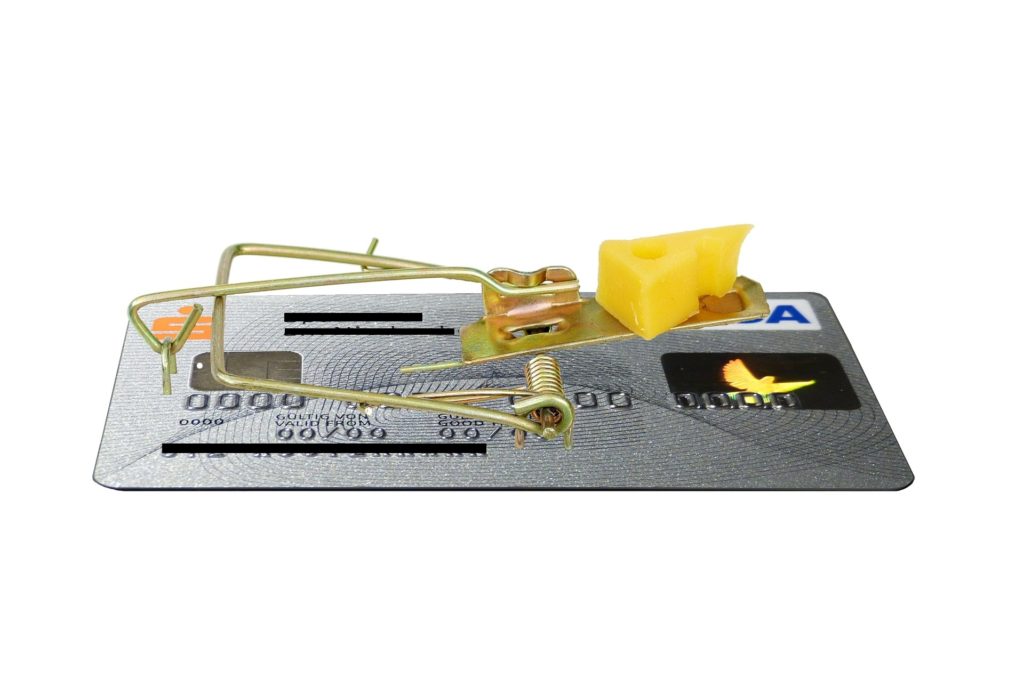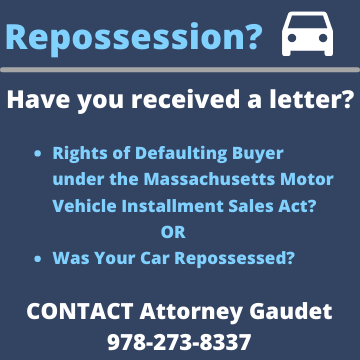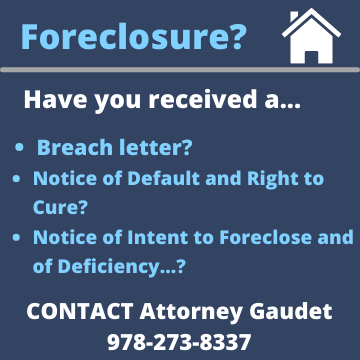
Take my bankruptcy questionnaire below to determine if you have some of the risk factors that might trigger a need to file for bankruptcy. Generally, if the answer to three or more of these questions is “yes,” filing for bankruptcy in Massachusetts may be a good option.
1. Are you being sued for money that you owe to a creditor?
If you answered yes here, it may be possible to stop creditors by filing for bankruptcy in Massachusetts. Lawsuits involving credit card companies, breach of contract matters, personal injury cases where negligence is involved, foreclosure on a home, and partnership disputes may be stopped when you file for bankruptcy. Although creditors can request permission from a court to continue with a lawsuit against a debtor if the case will not impact the bankruptcy and significant harm might come to the creditor without a resolution. The details matter as to whether a creditor will be able to continue a lawsuit to recover money owed by you, consult with your attorney for more information.
Divorce, child custody and support or criminal cases cannot be stopped simply by filing a bankruptcy. Such cases will continue in tandem with the bankruptcy case.
2. Are you facing repossession of your car?
Once you are at the point of multiple late payments, missing payments and late fees the finance company is likely to come for your vehicle. While filing Chapter 7 bankruptcy will impose the automatic stay on the finance company (meaning they cannot initially repossess your vehicle), the finance company may decide to file a motion to lift the automatic stay on the grounds that you are in default of the loan terms. Better yet, filing Chapter 13 bankruptcy forces the hand of the credit card company as long as arrearage is addressed in the repayment plan, preventing the finance company from repossessing your vehicle. Keep in mind, though, that you will need to make all of the payments under the Chapter 13 plan.
Doing nothing, that is, continuing to make late payments or no payments at all will surely result in repossession of the vehicle.
3. Are you facing foreclosure on your home?
Again, doing nothing will likely result in the bank or finance company gaining possession of your home. And, similar to repossession of a car, the automatic stay imposed by filing Chapter 7 bankruptcy is temporary because the lender can file a motion to lift the automatic stay. Chapter 13 bankruptcy, however, gives the filer the opportunity to cover the arrearages (the amount owed in principal, interest and other charges) over the life of a repayment plan and this option might result in the home being saved from foreclosure if the debtor continues to make full and timely payments to the lender for the life of the plan.
4. Are you making all payments for your daily needs on a credit card?
A desperate situation. When necessary living expenses, that is, food, shelter, clothing, transportation expenses, and other necessaries are being paid solely with a credit card this is a warning sign that the debtor is in deep financial trouble. Simply put, the accumulation of late fees and interest charges can quickly compound the debt owed to a credit card exponentially for a consumer in such circumstances.
5. Will it take greater than 5 to 7 years to pay off the money that you owe to people?
If you find yourself looking at a 5-7 year horizon of covering the debts that you owe to credit card companies, friends, mortgage(s), vehicle finance loans, etc., and you are barely making those payments on a month to month basis, you need to find some solution to improving your financial situation. Options include obtaining secondary employment, lowering unnecessary expenses, or potentially renegotiating debt with a creditor. If these options fail, or circumstances make bankruptcy more appealing, bankruptcy may be the best option for you to change your financial outlook in the long term.
6. Do you have regular garnishments or attachments to your wages?
If you have not recently filed for bankruptcy, most wage garnishments (excluding child support) will stop under the automatic stay imposed on creditors by filing a bankruptcy petition in Massachusetts. While it is possible for a motion to lift the automatic stay from creditor to succeed in bankruptcy court, thus allowing the creditor’s wage garnishment to remain, there must typically be some collateral that is involved (house, car, etc.) and the creditor must be in danger of coming out at a loss if they must wait until the bankruptcy case has wrapped up.
7. Are you cashing out retirement savings to pay your bills?
Similar to using a credit card to pay all necessary bills, once retirement savings is being used to pay bills you may be in a very difficult financial position. Not only is the use of retirement funds depleting future income, but usually at a high price with penalties and capital gains paid on early withdrawals.
8. Is the total amount of debt you owe greater than the amount you earn annually?
When annual income is less than total debt, you may be fighting an uphill battle to chip away at that debt. Often, the deciding factor as to just how big (relatively speaking) consumer debt is, depends upon the amount of extra income left every month after paying off all required monthly payments. For individuals with extra income after all monthly expenses are paid, the financial situation may be more manageable. However, for those without extra income at the end of each month, even if able to tread water and make minimum payments on debt, these individuals are in trouble if anything upsets this fragile financial predicament.
9. Is a repayment plan with your creditors not a good option?
Sometimes a repayment plan is the perfect choice. A repayment plan of the type where the creditor agrees to receive less than the full amount owed can sometimes be a viable option. Still, under these types of plans the creditor can always decide to sue the debtor, whereas under certain types of bankruptcy the creditor cannot pursue the debtor if repayment is made in full and according to the repayment plan.
DISCLAIMER:
The information provided in the pages and posts of this website are for general informational purposes only. The information presented on this site is not legal advice, and no attorney-client relationship is formed by the use of this site.





